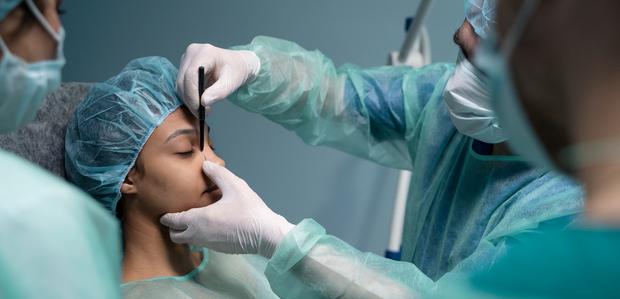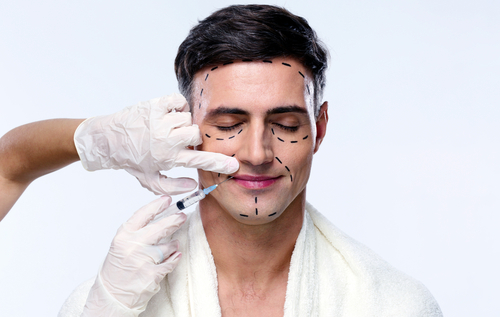Investigating the Emotional and Social Variables That Drive People to Think About Plastic Surgery as a way of Improvement
The decision to pursue cosmetic surgical procedure commonly expands past mere visual appeals, linking with emotional and social characteristics that merit comprehensive exam. Variables such as self-confidence, pervasive social beauty criteria, and the pervasive influence of social media sites converge to shape specific inspirations for medical improvement. As these impacts come to be increasingly famous, recognizing the underlying social and emotional contexts is essential. What stays to be explored is the extensive impact these factors have not just on individuality but additionally on more comprehensive social norms and worths surrounding elegance and approval.
The Role of Self-Esteem
Self-confidence dramatically influences an individual's decision to seek cosmetic surgical treatment. Individuals with reduced self-confidence often view themselves in an unfavorable light, leading to sensations of inadequacy regarding their physical look.

Inevitably, the function of self-esteem in the decision-making process pertaining to plastic surgery highlights the complex interaction in between body image, personal satisfaction, and psychological health and wellness. Recognizing this relationship is important for healthcare professionals to guarantee that individuals are making notified choices rooted in practical expectations and emotional wellness.
Social Beauty Requirements
Influenced by prevalent media portrayals and social narratives, social beauty criteria play a vital role fit people' perceptions of their very own bodies. These requirements are often defined by an idealized type of appeal that emphasizes attributes such as symmetry, youthfulness, and slimness. As these perfects are continued with numerous networks, consisting of marketing, film, and television, individuals often internalize these messages, resulting in discontentment with their natural appearance.
The ramifications of these societal standards extend beyond aesthetic preferences; they can impact self-esteem, psychological wellness, and interpersonal partnerships. People that regard themselves as disappointing these requirements may experience feelings of insufficiency, triggering a desire for plastic surgery as a means of attaining societal authorization. This quest is commonly sustained by the idea that adjusting to these perfects will certainly enhance not just physical look however additionally social standing and personal gratification.

Influence of Social Media
The effect of social elegance criteria is more magnified by the rise of social media sites platforms, where curated images and idealized depictions of beauty are common. Users are regularly subjected to filtered and edited photos, which frequently illustrate unattainable physical features. This direct exposure cultivates a culture of contrast, leading people to examine their own look against these usually unrealistic criteria.
Social network influencers and stars often promote cosmetic procedures, stabilizing the concept that surgical improvements are a feasible methods try this out for attaining societal suitables (plastic surgery rancho cucamonga). The visibility of these improvements can create a perception that going through cosmetic surgical treatment is a standard method, thus influencing individuals to take into consideration comparable interventions as a path to improved self-esteem and social approval
Moreover, the interactive nature of social media sites permits for prompt responses through likes and comments, even more strengthening the wish to comply with prominent charm standards. Such communications can aggravate sensations of inadequacy and drive individuals towards cosmetic surgical procedure as a method of gaining recognition. Eventually, social media plays a pivotal function fit understandings of charm, which dramatically impacts the decision-making processes bordering cosmetic surgical treatment.

Cultural Perspectives on Appearance
Throughout numerous cultures, perceptions of look are deeply rooted in historical, social, and economic contexts, shaping individuals' views on elegance and worth. In several societies, look functions as a substantial marker of identity, affecting social standing, expert chances, and individual connections. As an example, in some societies, light skin is usually related to riches and advantage, while others might glorify darker complexion as icons of strength and authenticity.
In addition, traditional charm standards are commonly continued via cultural narratives, media depictions, and family affects, leading to differing ideals across various areas (plastic surgery rancho cucamonga). In Western societies, the focus on young people and physical fitness commonly drives individuals towards aesthetic enhancement, while in specific Eastern societies, more subtle adjustments aligned with traditional aesthetics may be preferred
Globalization and the expansion of digital media have even more complicated these characteristics, producing a hybridization of beauty perfects that transcends geographical borders. As individuals significantly browse these cultural narratives, the stress to satisfy specific look requirements can cause the need for cosmetic surgical procedure, showing an intricate interplay of social worths and individual goals. Understanding these cultural point of views is important in dealing with the motivations behind plastic surgery factors to consider.
Emotional Impacts of Plastic Surgery
Several people looking for cosmetic surgical treatment report experiencing extensive psychological impacts that can substantially alter their self-perception company website and psychological wellness - plastic surgery rancho cucamonga. The need for physical enhancement frequently stems from underlying problems such as low self-esteem, body dysmorphic condition, or societal stress concerning appeal criteria. For some, the instant post-operative phase can lead to a short-lived increase in confidence and contentment with their appearance, promoting a sense of empowerment
Nevertheless, these favorable sensations might not be sustaining. Research study indicates that while some clients experience enhanced self-esteem, others may face elevated stress and anxiety or anxiety if their expectations are not met. This inconsistency can arise from unrealistic suitables perpetuated by media representation and social stories surrounding appeal.
Additionally, the mental ramifications of cosmetic surgical procedure expand beyond the person. Relationships with friends and family may be stressed as social characteristics shift, resulting in sensations of isolation or alienation. Inevitably, the psychological effects of cosmetic surgical treatment are complicated and multifaceted, needing cautious consideration by both prospective patients and medical care providers to guarantee enlightened decision-making and realistic assumptions.
Verdict
To conclude, the decision to seek cosmetic surgical treatment is considerably influenced by a combination of self-esteem concerns, societal elegance requirements, and cultural viewpoints on appearance. The pervasive reach of social networks better worsens these stress, promoting unrealistic perfects that individuals typically navigate to these guys make every effort to achieve. Understanding these social and psychological aspects is necessary for resolving the motivations behind plastic surgery, highlighting the need for a much more nuanced discussion bordering beauty and self-acceptance in modern culture.
The choice to go after cosmetic surgical treatment typically prolongs beyond plain aesthetic appeals, linking with emotional and social characteristics that merit extensive assessment. Inevitably, social media plays a crucial duty in forming perceptions of beauty, which considerably influences the decision-making procedures surrounding cosmetic surgical treatment.
As people increasingly navigate these social narratives, the stress to adapt to certain appearance standards can lead to the need for cosmetic surgical treatment, showing a complicated interaction of social worths and personal aspirations.In final thought, the choice to seek cosmetic surgical treatment is substantially affected by a combination of self-worth issues, societal appeal criteria, and social viewpoints on appearance. Comprehending these social and emotional variables is vital for attending to the inspirations behind cosmetic surgical procedure, highlighting the requirement for an extra nuanced discussion bordering elegance and self-acceptance in modern culture.